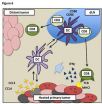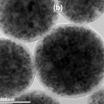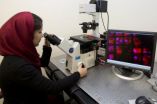(Press-News.org) Outbursts of anger may trigger heart attacks, strokes and other cardiovascular problems in the two hours immediately afterwards, according to the first study to systematically evaluate previous research into the link between the extreme emotion and all cardiovascular outcomes.
The study – a systematic review and meta-analysis – published online today (Tuesday) in the European Heart Journal [1], found that in the two hours immediately after an angry outburst, a person's risk of a heart attack (myocardial infarction (MI) or acute coronary syndrome (ACS)) increased nearly five-fold (4.74%), the risk of stroke increased more than three-fold (3.62%), and the risk of ventricular arrhythmia also increased compared to other times when they were not angry.
The researchers found that the absolute risk increased if people had existing risk factors such as a previous history of cardiovascular problems, and the more frequently they were angry.
Dr Elizabeth Mostofsky (MPh, ScD), an instructor at the Harvard School of Public Health and a post-doctoral fellow in the cardiovascular epidemiological unit at Beth Israel Deaconess Medical Center, (Boston, USA), said: "Although the risk of experiencing an acute cardiovascular event with any single outburst of anger is relatively low, the risk can accumulate for people with frequent episodes of anger. This is particularly important for people who have higher risk due to other underlying risk factors or those who have already had a heart attack, stroke or diabetes. For example, a person without many risk factors for cardiovascular disease, who has only one episode of anger per month, has a very small additional risk, but a person with multiple risk factors or a history of heart attack or stroke, and who is frequently angry, has a much higher absolute excess risk accumulated over time."
Dr Mostofsky and her colleagues calculated that one extra heart attack (MI or ACS) per 10,000 people per year could be expected among people with low cardiovascular risk who were angry only once a month, but this increased to an extra four per 10,000 people with a high cardiovascular risk. However, among people who were frequently angry, five episodes of anger a day would result in around 158 extra heart attacks per 10,000 people with a low cardiovascular risk per year, increasing to around 657 extra heart attacks per 10,000 among those with a high cardiovascular risk.
The researchers say that their results do not necessarily indicate that anger causes the cardiovascular problems, only that they are associated with them. However, they say the results are fairly consistent across the studies even though they were conducted over a period of more than 18 years in different countries and groups of people. The studies used a case crossover design to compare each person's level of anger immediately before a cardiovascular event to anger levels at other times.
Led by Dr Murray Mittleman (MD, DrPH) who is director of the Cardiovascular Epidemiology Research Unit at Harvard Medical School, Associate Professor of Medicine and Epidemiology at the Harvard School of Public Health and a cardiologist at the CardioVascular Institute at Beth Israel Deaconess Medical Center, the researchers looked for studies carried out between January 1966 and June 2013 on the links between anger and a range of cardiovascular outcomes, and analysed results from nine that were eligible for meta-analysis. These included 4546 cases of MI, 462 cases of ACS, 590 case of ischaemic stroke, 215 cases of haemorrhagic stroke, and 306 cases of arrhythmia.
They found that there were numerous differences between the trials, including the country in which trials were conducted, the trial protocols and methodology. This meant that, although they brought the data from these trials together to produce combined estimates of increased risk, doing this was not always appropriate, although the evidence from all the studies pointed consistently towards a definite increased risk.
Dr Mostofsky said: "Previous studies have shown that outbursts of anger are associated with an immediately higher risk of cardiovascular events, including heart attack and stroke, but since some of these studies were based on small sample sizes with few patients having outbursts of anger, the results were often reported with low precision. Furthermore, there has been no systematic evaluation to compare the results and examine whether there is consistency across studies of the same cardiovascular outcome and whether the association is of similar magnitude across studies of different types of cardiovascular outcomes, for instance between a heart attack or a stroke. Despite the heterogeneity between the studies included in our meta-analysis, all of the studies found that compared to other times, there was a higher rate of cardiovascular events in the two hours following outbursts of anger."
The authors say there are several potential mechanisms linking anger outbursts and cardiovascular problems. "Psychological stress has been shown to increase heart rate and blood pressure, and vascular resistance," they write in their paper. Changes in blood flow can cause blood clots and may stimulate inflammatory responses.
Dr Mittleman said: "It is important to recognise that outbursts of anger are associated with higher risk of heart attacks, stroke and arrhythmia. If clinicians ask patients about their usual levels of anger and find that it is relatively high, they may want to consider suggesting either psychosocial or pharmacologic interventions. Regular use of statins and beta-blockers are known to lower long-term cardiovascular risk, which in turn lowers the risk from each episode of anger. However, further research is needed to evaluate whether specific medication use may help break the link between the anger episode and a cardiovascular event. In addition, some antidepressants may improve impulse control. Further research is needed to determine the effectiveness of psychosocial interventions to prevent cardiovascular events such as heart attack and stroke."
Now, he and his colleagues are investigating whether anger immediately before a heart attack has an effect on the long-term prognosis for the patient.
In an editorial on the paper, Dr Suzanne Arnold and Professor John Spertus (both from the University of Missouri – Kansas City, USA), and Dr Brahmajee Nallamothu (University of Michigan, USA), who were unconnected with the research, say that the link between anger and various cardiovascular conditions is well-ingrained in the minds of both clinicians and patients. However, "while the long-term link between chronic mental stress, anxiety, depression and hostility with adverse cardiovascular events has been well-established, it has been more difficult to determine the short-term risk of an acute outburst of anger," they write.
Despite the limitations caused by the problems of producing combined estimates from a small number of such varied studies, they say "as a systematic review, the manuscript highlights important, consistent findings of an increased risk of diverse cardiovascular events after an acute outburst of anger. Given the known physiologic effects of acute (and chronic) anger, these results are not surprising. The remaining question in all of these studies, however, is how to prevent these dangerous anger episodes."
They conclude: "Given the lessons we have learned from trying to treat depression after MI, treating anger in isolation is unlikely to be impactful. Instead, a broader and more comprehensive approach to treating acute and chronic mental stress, and its associated psychological stressors, is likely to be needed to heal a hostile heart."
INFORMATION:
Notes:
[1] "Outbursts of anger as a trigger of acute cardiovascular events: a systematic review and meta-analysis", by Elizabeth Mostofsky, Elizabeth Anne Penner, and Murray A. Mittleman. European Heart Journal. doi:10.1093/eurheartj/ehu033
[2] "The hostile heart: anger as a trigger for acute cardiovascular events", by Suzanne V. Arnold, John A. Spertus, and Brahmajee K. Nallamothu. European Heart Journal, doi:10.1093/eurheartj/ehu097
Outbursts of anger linked to greater risk of heart attacks and strokes
2014-03-04
ELSE PRESS RELEASES FROM THIS DATE:
Dartmouth researchers find promising results with local hyperthermia of tumors
2014-03-04
A combination of iron-oxide nanoparticles and an alternating magnetic field, which together generate heat, have activated an immune system response to tumors in mice according to an accepted manuscript by Dartmouth-Hitchcock Norris Cotton Center researchers in the journal Nanomedicine: Nanotechnology, Biology and Medicine released online on February 24, 2014.
"The study demonstrates that controlled heating of one tumor can stimulate an immune response that attacks another tumor that has not had the heat treatment," said Steve Fiering, PhD, Norris Cotton Cancer Center ...
Plant extract hope for infant muscle disease
2014-03-04
Their study is published today (3rd March 2014) in the Journal of Clinical Investigation.
The research team have found that a plant pigment called quercetin – present in some fruits, vegetables, herbs and grains – could help to prevent damage to the nerves associated with the childhood form of motor neurone disease, spinal muscular atrophy (SMA).
SMA, also known as 'floppy baby syndrome', is a leading genetic cause of death in children. It affects approximately one in 6,000 to 10,000 children and around half of children with the most severe form will die before the ...
Researchers develop antibody-targeted treatment for recurrent small-cell lung cancer
2014-03-04
Researchers at Norris Cotton Cancer Center have found an antibody that may be used in future treatments for recurrent small-cell lung cancer, which currently has no effective therapy. The mouse monoclonal antibody they have developed, MAG-1, targets the ProAVP surface marker. When given alone, it significantly slows the growth of tumor xenografts of human recurrent small-cell lung cancer in mice. The study, "Growth Impairment of Small-Cell Cancer by Targeting Pro-Vasopressin with MAG-1 Antibody," was recently published online in Frontiers in Oncology.
"We are developing ...
JCI online ahead of print table of contents for March 3, 2014
2014-03-04
Identification of factors that influence breast cancer metastasis to bone
One of the more serious and frequent complications of advanced breast cancer is bone metastasis, which is exacerbated by TGF-β signaling; however, it is not clear how TGF-β production is regulated prior to and during metastasis. In this issue of the Journal of Clinical Investigation, Guohong Hu and colleagues at the Shanghai Institutes for Biological Sciences evaluated murine models of invasive breast cancer and determined that cancer cells lacking the putative tumor suppressor DLC1 have ...
Youngest kindergarteners most likely to be held back, MU study finds
2014-03-04
COLUMBIA, Mo. -- For some parents, the decision of when to enroll their children into kindergarten can result in costly consequences such as another year of daycare expenses. In general, children must be five years old to be eligible to be enrolled in kindergarten. However, the developmental differences between a young kindergartener who barely qualifies for the state-mandated age cutoff date compared to a child who is almost year older, may have implications. Now, a University of Missouri researcher has found that the youngest kindergartners are about five times more likely ...
UC research tests which nano system works best in killing cancer cells
2014-03-04
In current research related to improving cancer treatments, one promising area of research is the effort to find ways to selectively pinpoint and target cancer cells while minimizing effects on healthy cells.
In that effort, it's already been found in lab experiments that iron-oxide nanoparticles, when heated and then applied specifically to cancer cells, can kill those cells because cancer cells are particularly susceptible to changes in temperature. Increasing the temperature of cancer cells to over 43 degrees Celsius (about 109 degrees Fahrenheit) for a sufficient ...
The chemistry (and fascinating history) of pepper, the spice that changed the world
2014-03-04
WASHINGTON, March 3, 2014 — Pepper is one of the most plentiful condiments in the world today, but it used to be more valuable than gold. In the American Chemical Society's (ACS') latest Reactions video, we examine how pepper's delectable chemistry made it a key player in the global spice trade. The sought-after spice helped usher in the "Age of Discovery," which bridged the gap between the Middle Ages and the Modern era. And because we're celebrating our second month of existence, it's a Reactions double feature this week. In our second video, we examine the science behind ...
Team models photosynthesis and finds room for improvement
2014-03-04
CHAMPAIGN, Ill. — Teaching crop plants to concentrate carbon dioxide in their leaves could increase photosynthetic efficiency by 60 percent and yields by as much as 40 percent, researchers report in a new study.
The team used a computer model to simulate how adding genes from a type of photosynthetic algae known as cyanobacteria might influence photosynthetic efficiency in plants. Cyanobacteria contain small structures, called carboxysomes, which concentrate carbon dioxide at the site of photosynthesis.
"Photosynthesis is the most studied of all plant processes, so ...
Scientists identify protein linked to most common movement disorder
2014-03-04
Quebec City, March 3rd, 2014—A team of researchers from Université Laval and CHU de Québec identified unusually high levels of a certain protein in the brains of people suffering from essential tremor (ET), a movement disorder that affects 4% of the adult population. The discovery, the details of which were published in the most recent edition of the journal Movement Disorders, could lead to an effective treatment for this neurological condition, which is 10 times more prevalent than Parkinson's disease.
As its name suggests, ET causes tremors in various parts of the ...
UC research tests range of electrical frequencies that help heal chronic wounds
2014-03-04
Naturally occurring electricity in our cells is key to how our bodies function, and that includes the healing of wounds.
And externally applied low-amplitude electric fields have been shown to help hard-to-heal chronic wounds, like those associated with diabetes, where there is insufficient blood supply and drug treatments are not effective. The externally applied electric field manipulates the body's naturally occurring electricity, such that the new vessels are formed, and blood supply to the wound is increased.
University of Cincinnati physics and biomedical engineering ...




